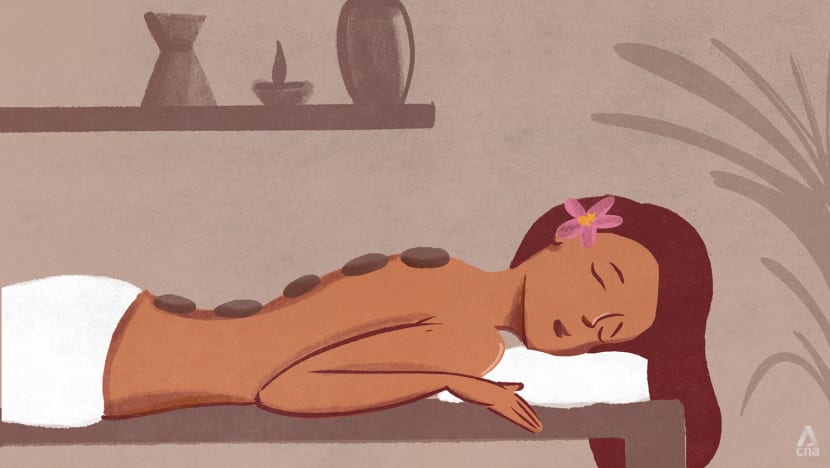
Studio Ellipsis is the newest venture by the folks at FunPlus, who developed Sea of Conquest They're focusing on producing new cross-media products, like the recent comic book I got to sit down with new studio head Alexandre Imanchio and find out what we can expect It may not surprise you to hear that I’ve been travelling again. And while it may sound like a jolly, rest assured I was doing plenty of work in the process. In fact, the reason I flew out to sunny (or rainy, as it turned out) Lisbon was to .
This newly-opened studio was founded with the help of FunPlus, and you may have seen us reporting on their first venture with the . But that’s not all they’re working on, far from it. And while I can’t offer any stunning revelations, I did get the chance to listen to what they’ve got planned.
One of those people was Alexandre Imancio, who served as SVP of world-building and IP strategy at FunPlus before taking up the position of leading Studio Ellipsis. That basically means he handled all the ‘franchise’ stuff. A veteran of the gaming industry with the beard to prove it, he’s someone who has a real wealth of experience to share in both the business and creative side of things.
In fact you might recognise some of the major titles he's worked on. When it comes to Alexandre, I don’t use the word ‘veteran’ lightly. Having previously served as the creative director on Assassin’s Creed Revelations and Unity, not to mention kicking off his career doing the same for Far Cry 2, he has plenty to boast about.
Fortunately, he’s not that kind of person, but when we sat down in the office at the newly opened Studio Ellipsis in Lisbon, he certainly had plenty to tell me about what inspired the studio. What follows is an admittedly heavily edited version of what we discussed. And while it may veer a little into the technical side of things, I think you’ll agree once you’ve finished reading that it makes you curious to see what the future holds for Studio Ellipsis and their upcoming projects.
I started my career in gaming at Ubisoft. The first game that I worked on was Far Cry 2, I was actually the art director and also worked on creating the graphical pipeline and building the engine with the engineers. Then afterwards, I moved on to Creative Direction, joined the Assassin's Creed brand.
I worked on Assassin's Creed Revelations as Creative Director and I was the one who kicked off interest at Ubisoft to do a pirate game, which became Black Flag. Next, I moved on to Assassin's Creed Unity, the project had a really tight deadline and they needed a creative director, so I came aboard and helped get it shipped. Then, I left Ubisoft to start a company called Reflector Entertainment, which was a video game company specialising in transmedia projects.
After COVID hit, we sold the company to Bandai Namco. I stayed at the company for a little while to make sure that everything was under control and all the projects were going in the right direction. Then, I was contacted by FunPlus.
Andy, the founder, was looking to move the company to the next phase in its evolution. It had been very mobile-focused and Andy had this vision that the next big IP, like Star Wars or Marvel, will come from a video game. His idea was to just focus more on worldbuilding.
He was looking for somebody that already had experience in that field. I was convinced, since this was also my vision. I joined FunPlus as Senior Vice President of Worldbuilding and IP Strategy.
Then, since I wanted to be closer to the Swiss office and to Barcelona. I chose to move to Portugal and Lisbon. I fell in love with the city and saw a lot of creative energy there.
So I spoke with FunPlus and we decided to start a studio here. Studio Ellipsis has two poles, if you will. The first one is worldbuilding and IP strategy.
This is essentially a support department where we help all of the different projects across FunPlus develop their IP. Sometimes it's guidelines, sometimes it's collaborative, sometimes it's more hands-on. Not only do we help in building the actual core IP, the universe, the bible [a design document], and the mythology, but also on how to expand that IP into other products than just video games.
Be it comic books, animation, film, podcasts or novels. The second pole of Ellipsis is actually about creating a unique original IP based on a PC-first video game [that’ll also be coming to mobile] across the platform, and then building out that IP across multiple platforms as well. Well, ever since prehistory, humans have always had the same three basic objects or needs that are fundamental to their existence.
It's the social network, food and shelter. If you fast-forward to modern times mobile devices have been absorbing more and more of them. Your phone is now the key to your house, so it's your shelter.
Your phone is also your contact with all of your social network, and also your wallet, so it's your way of getting food. That shows how ubiquitous and how central mobile devices have become in our lives. They've essentially absorbed the three fundamental human needs that we've had since prehistory.
We always have them with us, and they're literally windows into windows of possibility. So for that reason alone, these platforms are incomparable in terms of their level of reach. The only limitation that a mobile device has is its screen, but even screens might not even exist in the future, but you'll still have your mobile device (or a type of one) with you.
My point, I guess, is that I think that we're reaching a point where platforms are merging. And I think that if there was a war between different platforms, I don't think mobile would be the one that would lose. I mean, I would say that it's more than that.
That is part of the DNA of the studio. I believe that the way we segment entertainment is due to a 20th-entury legacy. When you wanted to get to an audience you needed to distribute your product and you had distribution channels which were print, radio, TV, film which became the media conglomerates and so it just became of course that they're each an art form and they have their own unique channels through which you reach an audience but if you fast forward to now your phone is a portal to all of them.
You can watch a film series and listen to a podcast, you can read a book, you can read a comic book on your device easily so the lines between the media are not just blurring they're vanishing. So I don't see us as exporting our property to a series. I see the series as being a fundamental part of the universe in the ecosystem.
It has to be thought about when you're creating your universe from the onset I'm not saying we should develop the TV property from the onset but I'm saying that when you build your universe it should be universal you're building a mythology and if you do it right you can create any kind of different medium with it. But I strongly believe you very rarely succeed in translating one medium to the other and maintaining the quality because when you're creating something good in a medium you're utilizing its strengths. So since film is a visual medium you’re hopefully utilising those elements to their fullest, you don't have to have characters say things you can just have a subtle move or a look.
Films are great for that but they're not always the best at getting into the heads of a character, unless you use something such as a voiceover which doesn’t translate very well to a visual medium. But you can’t always translate one medium fully into another, so if you take an amazing book and you turn it into a film, odds are it's going to be a lesser version. There are some rare examples of it working, but it's usually going to be lacklustre because you’re taking a masterpiece that uses one medium to its maximum, and then you're translating it to a different medium that doesn't have the same qualities.
So I believe that you need to look at each individual product and its medium first and then you tell the story that's right for that avenue. It needs to complement the other stories, it needs to be part of a whole universe, it needs to add to that overall mythology, but it should also be a different product. I think for Studio Ellipsis things like series like comic books, podcasts or novels are part of the fundamental DNA we're building universes with.
It starts with a game but the universe then goes on to transcend that medium. Well, transmedia is actually an evolution of something called media mix which originated in Japan in, I believe, the 60s or 70s. And it’s specifically the creation of universes in one property, but then having these committees that think about how they live and exist in other media.
So media mix is definitely an inspiration for transmedia and for our strategy and I would even add that I think that we're at a crucial point now because of how everything is interconnected where we can take that theory to another level. Before you were just a consumer, and you could consume stuff on all these different platforms but you're still just on the receiving end. But now because it's a two-way street you can have that magic of these interconnected worlds and you can add the fan into the mix which we could do like a few years ago but it wasn't mature enough then.
Now, however, I think that we're getting to a point where the audience has also grown up with this and it's becoming ubiquitous to them. I've lived my entire life in Montreal, my wife isFrench and we had been thinking about moving to Europe, loser to her family. We looked at various places and we fell upon Portugal and there seemed to be a real buzz about the place, but we had never really thought about it as a place to live.
So we came here, rented a house for a year while I worked and just fell in love with the city I feel a vibrance here that I honestly that I felt back in the day in Montreal when the gaming industry was starting, kind of this electric creativity and this is something that I missed. Montreal is at a different phase, one of the top video game centers in the world. But I miss that creative energy, that kind of bootstrap start-up energy, and it's something that I found here in Lisbon.
So the idea just grew and then I spoke to FunPlus about it and everybody thought it was a great idea. I have to say that I'm gonna give you a really old game, and it’s called because I think it's such an elegant game. I love the challenge of it, I love the unpredictability of it.
It's both ruthless and at the same time rewarding, it's got elements of strategy, it's got elements of frustration, it's just a really tight tight design. I play a lot of other ones but like this is my default as soon as I have a little bit of time, again I just love the elegance of it. You can check out Studio Ellipsis first major project, the comic-book series Sea of Conquest: Cradle of the Gods .
And be sure to check in and we'll keep you updated on any and all upcoming news about their in-the-works franchise..










